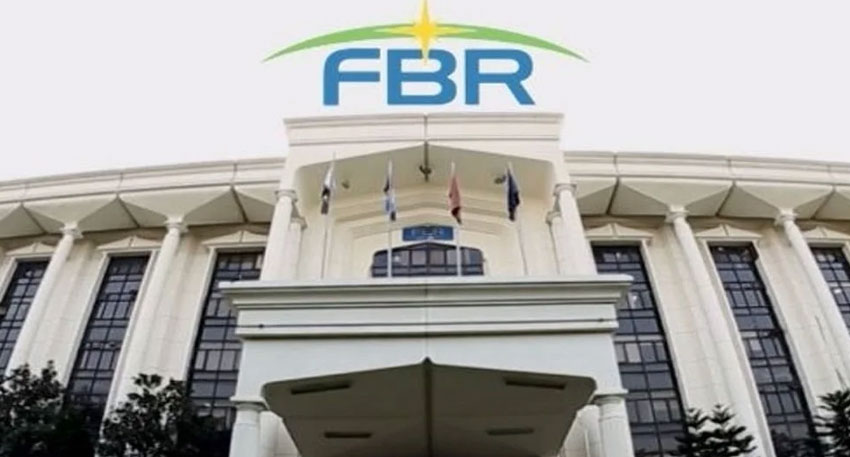The Federal Board of Revenue (FBR) has launched one of the country’s most extensive crackdowns on digital income earners, as FBR Targets 100000 Influencers Flaunting wealth on platforms like Instagram, TikTok, YouTube, and Facebook. These influencers, who often showcase expensive vacations, luxury homes, and high-end fashion, are now under investigation for potential tax evasion and undeclared income streams.
Why Influencers Are Under the Radar
Social media has emerged as one of the most profitable industries in Pakistan in recent years. With global brands pouring millions into digital campaigns, influencers often earn far more than traditional professionals. Despite this, tax returns filed by many in this sector show modest earnings, creating a glaring mismatch between lifestyle and declared income.
The initiative where FBR Targets 100000 Influencers Flaunting luxury lifestyles is being described as a long-overdue response to an expanding “shadow economy.” Officials say that while doctors, engineers, and salaried individuals consistently pay taxes, an entire digital class is profiting massively without contributing fairly to the treasury.
A Systematic Monitoring Process
According to officials, the surveillance program began quietly months ago. An automated system was used to scan the online presence of thousands of content creators, recording videos, photos, and posts where luxury cars, branded watches, designer clothes, and international trips were highlighted.
This database is now being cross-verified with tax records and income declarations. Whenever a mismatch occurs — for example, when a declared monthly income is 200,000 PKR but online content shows million-rupee foreign tours — officials flag the case for deeper review. This systematic process exemplifies how FBR Targets 100000 Influencers Flaunting lifestyles is not random but based on visible financial discrepancies.
The Scale of the Crackdown
This is one of the largest actions ever taken against Pakistan’s influencer community. Never before has a tax authority identified such a vast group simultaneously, focusing specifically on digital income earners. Authorities emphasize that this is not an attack on the industry itself but a step toward regulation and transparency.
By making FBR Targets 100000 Influencers Flaunting a centerpiece of its tax collection efforts, the agency hopes to secure billions in previously untapped revenues. These funds could play a vital role in narrowing Pakistan’s fiscal deficit, paying debt obligations, and financing public reforms.
Reaction in the Influencer Community
Responses from influencers themselves have been mixed. A number of creators welcomed the move, arguing that fair taxation ensures respectability for the profession. They believe it will separate legitimate creators who file taxes from those who exploit gaps. Others, however, worry about harassment or being unfairly targeted for “showing” products that may have been borrowed, gifted, or sponsored.
In popular forums, heated debates erupted soon after the news spread. Hashtags supporting and criticizing the measure began trending. Still, most agree that FBR Targets 100000 Influencers Flaunting wealth is an enforcement necessity given the widening tax gap in Pakistan.
The Broader Context of Taxation in Pakistan
Pakistan historically struggles with low tax compliance, with only a small portion of the population registered as active taxpayers. This limited contribution severely restricts state resources. Economists argue that by cracking down on digital earners flaunting immense wealth, the government addresses not only fairness but also the sustainability of national finances.
Globally, tax authorities have been scrutinizing the influencer industry. In India, thousands of creators have already been issued income tax notices, while the United Kingdom passed specific guidelines categorizing online sponsorships and bartered deals as taxable income. The step where FBR Targets 100000 Influencers Flaunting luxury is therefore consistent with global best practice.
Potential Challenges for FBR
While the decision is bold, challenges remain. Tax officials must distinguish between genuine wealth and exaggerated content. For instance, many influencers borrow cars or collaborate with brands offering expensive items for promotion. If not evaluated carefully, some cases could involve innocent creators facing unnecessary scrutiny.
Moreover, legal experts point out that enforcement requires clear digital taxation rules. Without proper definitions of how “gifts,” “sponsorships,” and “affiliate incomes” are taxed, loopholes will remain. Thus, as FBR Targets 100000 Influencers Flaunting their lifestyles, policymakers also need to draft comprehensive legislation for digital earnings.
Citizens’ Perspective
Public reaction has largely supported the crackdown. Ordinary citizens argue that it is unfair for salaried employees to pay heavy taxes while online personalities showcase lavish wealth without filing proper returns. Many see this as a crucial step toward social equality in taxation.
At the same time, some young fans of influencers expressed concerns. They worry that excessive enforcement could “demotivate” creators, reducing content diversity in Pakistan’s fast emerging digital economy. Still, the balance between enforcement and encouragement is a delicate one.
Economic Benefits of Digital Taxation
Economists explain that regulating the influencer economy could potentially bring in billions in lost revenue. By formalizing the digital sector, the FBR can ensure proper reporting of payments made by brands, foreign companies, and online platforms. In the long run, this strengthens national revenue and brings stability.
Additionally, when FBR Targets 100000 Influencers Flaunting wealth, it sends an important message to international investors. A regulated digital economy with tax compliance ensures fairness and transparency, improving Pakistan’s reputation as a growing digital hub.
Looking to the Future
While the immediate action creates a strong message, its future effectiveness relies on consistency. If cases are dropped arbitrarily or handled without transparency, the public will lose faith. On the other hand, fair evaluation, structured warnings, and proper legal backing can transform this into one of Pakistan’s most impactful reforms.
What’s equally vital is educating influencers about financial literacy. Many emerging creators may not even know how to register income streams. Alongside enforcement, FBR’s outreach programs and public awareness campaigns must guide young content creators so they can comply without fear.
In the coming months, the key outcome will depend on whether cooperation or confrontation dominates the process. Regardless, it is evident that the digital world is no longer invisible to the taxman, and when FBR Targets 100000 Influencers Flaunting wealth, it marks the beginning of a new chapter in Pakistan’s taxation history.
Conclusion
The campaign where FBR Targets 100000 Influencers Flaunting luxurious lifestyles is a turning point, signaling the inclusion of Pakistan’s digital economy into the national tax net. While challenges persist, the move is broadly seen as necessary for fairness, transparency, and economic growth. It sets a precedent that online fame must also come with fiscal responsibility.

















